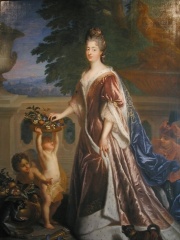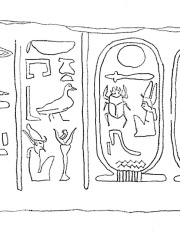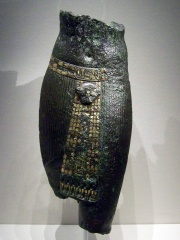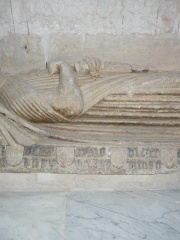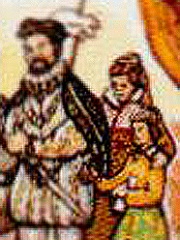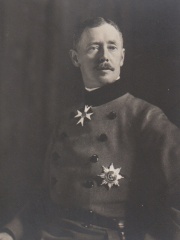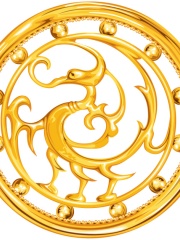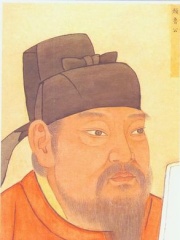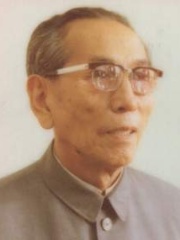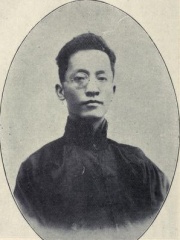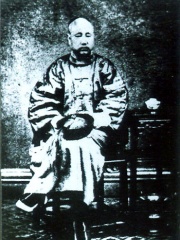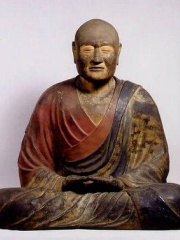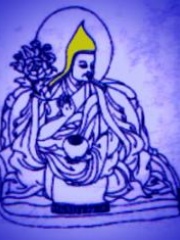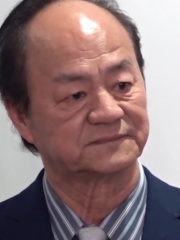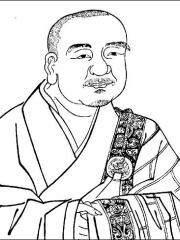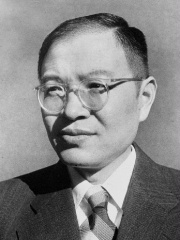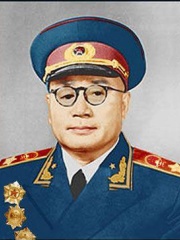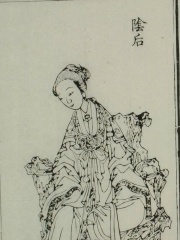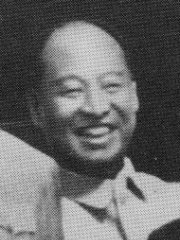Politician
Man Chong
209 - today

 Man Chong
Man Chong
Man Chong () (before 175 – April or May 242), courtesy name Boning, was a Chinese military general and politician of the state of Cao Wei during the Three Kingdoms period of China. He previously served under the warlord Cao Cao during the late Eastern Han dynasty. He is best known for defending the city of Hefei from a series of invasions by Wei's rival state, Eastern Wu, between 230 and 235. Read more on Wikipedia
His biography is available in 15 different languages on Wikipedia. Man Chong is the 8,817th most popular politician (down from 7,882nd in 2024), the 591st most popular biography from China (down from 576th in 2019) and the 333rd most popular Chinese Politician.
Memorability Metrics
Page views of Man Chong by language
Among Politicians
Among politicians, Man Chong ranks 8,817 out of 19,576. Before him are Andriscus, Louise Bénédicte de Bourbon, Goharshad Begum, Osorkon the Elder, Pedubast I, and Ivica Dačić. After him are Sancho Alfonso, 1st Count of Alburquerque, Honoré I, Lord of Monaco, Lindsey Graham, Friedrich Ferdinand, Duke of Schleswig-Holstein, Mustafa Akıncı, and Matteo Renzi.
Most Popular Politicians in Wikipedia
Go to all RankingsAndriscus
185 BC - 146 BC
HPI: 62.43
Rank: 8,815
Louise Bénédicte de Bourbon
1676 - 1753
HPI: 62.43
Rank: 8,816
Goharshad Begum
1400 - 1457
HPI: 62.43
Rank: 8,817
Osorkon the Elder
1100 BC - 986 BC
HPI: 62.43
Rank: 8,818
Pedubast I
900 BC - 793 BC
HPI: 62.43
Rank: 8,819
Ivica Dačić
1966 - Present
HPI: 62.43
Rank: 8,820
Man Chong
209 - Present
HPI: 62.43
Rank: 8,821
Sancho Alfonso, 1st Count of Alburquerque
1342 - 1374
HPI: 62.43
Rank: 8,822
Honoré I, Lord of Monaco
1522 - 1581
HPI: 62.43
Rank: 8,823
Lindsey Graham
1955 - Present
HPI: 62.43
Rank: 8,824
Friedrich Ferdinand, Duke of Schleswig-Holstein
1855 - 1934
HPI: 62.43
Rank: 8,825
Mustafa Akıncı
1947 - Present
HPI: 62.43
Rank: 8,826
Matteo Renzi
1975 - Present
HPI: 62.43
Rank: 8,827
Contemporaries
Among people born in 209, Man Chong ranks 2. Before him is Dongcheon of Goguryeo.
Others Born in 209
Go to all RankingsDongcheon of Goguryeo
POLITICIAN
209 - 248
HPI: 64.43
Rank: 1
Man Chong
POLITICIAN
209 - Present
HPI: 62.43
Rank: 2
In China
Among people born in China, Man Chong ranks 591 out of 1,610. Before him are Yan Zhenqing (709), Ngapoi Ngawang Jigme (1910), Hu Hanmin (1879), Sengge Rinchen (1811), Jianzhen (688), and 8th Dalai Lama (1758). After him are Erin Hunter (null), Jin Midi (-134), Wang Hongwen (1935), Joan Chen (1961), Ti Lung (1946), and Sengcan (529).
Others born in China
Go to all RankingsYan Zhenqing
POLITICIAN
709 - 785
HPI: 62.52
Rank: 585
Ngapoi Ngawang Jigme
POLITICIAN
1910 - 2009
HPI: 62.51
Rank: 586
Hu Hanmin
POLITICIAN
1879 - 1936
HPI: 62.50
Rank: 587
Sengge Rinchen
POLITICIAN
1811 - 1865
HPI: 62.49
Rank: 588
Jianzhen
RELIGIOUS FIGURE
688 - 763
HPI: 62.47
Rank: 589
8th Dalai Lama
POLITICIAN
1758 - 1804
HPI: 62.44
Rank: 590
Man Chong
POLITICIAN
209 - Present
HPI: 62.43
Rank: 591
Erin Hunter
WRITER
HPI: 62.42
Rank: 592
Jin Midi
POLITICIAN
134 BC - 86 BC
HPI: 62.42
Rank: 593
Wang Hongwen
POLITICIAN
1935 - 1992
HPI: 62.40
Rank: 594
Joan Chen
ACTOR
1961 - Present
HPI: 62.38
Rank: 595
Ti Lung
ACTOR
1946 - Present
HPI: 62.37
Rank: 596
Sengcan
RELIGIOUS FIGURE
529 - 606
HPI: 62.37
Rank: 597
Among Politicians In China
Among politicians born in China, Man Chong ranks 333. Before him are Zhang Wentian (1900), Yan Zhenqing (709), Ngapoi Ngawang Jigme (1910), Hu Hanmin (1879), Sengge Rinchen (1811), and 8th Dalai Lama (1758). After him are Jin Midi (-134), Wang Hongwen (1935), Liu Bocheng (1892), Yin Lihua (5), Peng Zhen (1902), and Ban Biao (3).
Zhang Wentian
1900 - 1976
HPI: 62.56
Rank: 327
Yan Zhenqing
709 - 785
HPI: 62.52
Rank: 328
Ngapoi Ngawang Jigme
1910 - 2009
HPI: 62.51
Rank: 329
Hu Hanmin
1879 - 1936
HPI: 62.50
Rank: 330
Sengge Rinchen
1811 - 1865
HPI: 62.49
Rank: 331
8th Dalai Lama
1758 - 1804
HPI: 62.44
Rank: 332
Man Chong
209 - Present
HPI: 62.43
Rank: 333
Jin Midi
134 BC - 86 BC
HPI: 62.42
Rank: 334
Wang Hongwen
1935 - 1992
HPI: 62.40
Rank: 335
Liu Bocheng
1892 - 1986
HPI: 62.35
Rank: 336
Yin Lihua
5 - 64
HPI: 62.35
Rank: 337
Peng Zhen
1902 - 1997
HPI: 62.34
Rank: 338
Ban Biao
3 - 54
HPI: 62.33
Rank: 339

